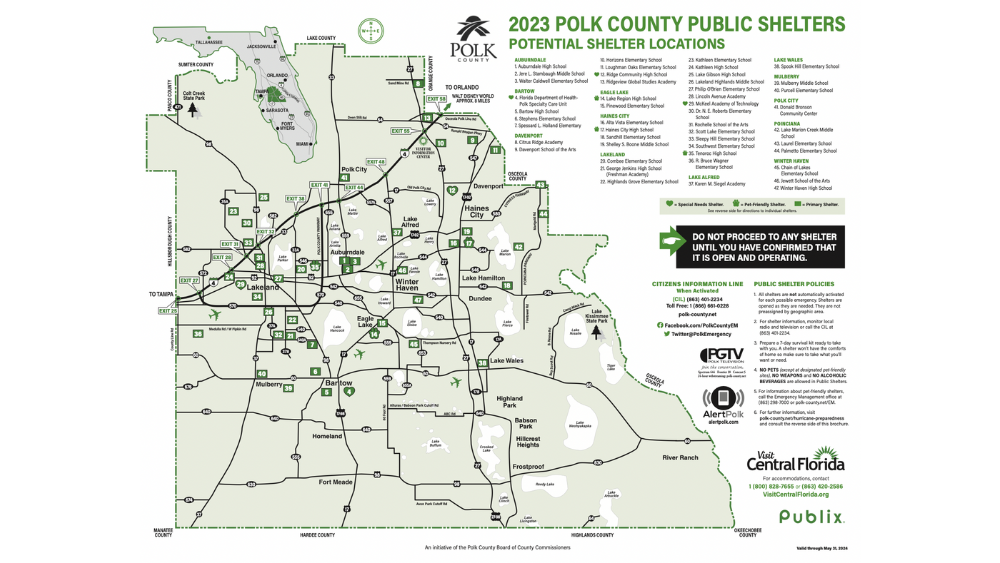It’s that time of year. Hurricane season officially begins on Sunday, June 1 and runs through Sunday, Nov. 30.
Experts are predicting an above-average hurricane season in 2025. The 2024 season was also predicted to be above average, and its post-peak season activity broke records.
To help Lakelanders prepare for the season, we’ve rounded up everything you can do to be hurricane-ready.
Stay informed
Sign up for Polk County’s emergency notifications on Alert Polk to get important weather updates during a hurricane watch (conditions possible within 48 hours) or a hurricane warning (conditions expected within 48 hours). You can also check the National Weather Service and National Hurricane Center for updates, or download one of these apps to track weather.
You can also tune into local radio stations WONN 1230 AM and WPCV 97.5.
Have a hurricane kit
You know the essentials: A first-aid kit, flashlights, medications, et cetera. For a comprehensive list, check out our hurricane kit must-haves.
The American Red Cross suggests having one gallon of water per person, per day, as well as non-perishables. Pro tip: Don’t forget to pack your hand-held can opener.
Prepare your home
Lakeland Electric recommends taking precautionary measures like unplugging non-vital appliances, boarding windows, filling bathtubs for sanitary purposes, and locating your electrical panel + fuse box. Be prepared to shut off your water and electricity at the breaker box if you evacuate. TECO recommends leaving your natural gas meter on.
We took to Instagram to ask how our followers prepare for potential storms. First Response HVAC gave us this pro tip: “We recommend turning your unit off as the storm gets closer. Your home will cool down as the storm passes and you do not run the risk of further damage due to flood water in your running unit.”
Have an evacuation plan
According to Polk County Emergency Management, you should stay home as long as it’s safe. However, it’s smart to have a plan B. If you need to leave your house, stay with someone who has a safe space or relocate to a hotel or out of the area 48-72 hours before the storm is expected to hit.
Polk County also has 47 potential public shelters (see the map above), 17 of which are in Lakeland. Three of the shelters are identified as special needs shelters — if you may need a special needs shelter, register in advance. Another three shelters are pet-friendly. If you do head to a shelter, don’t forget to bring your medications, water, food, changes of clothes, and other essentials you’ll need for up to 72 hours.
Remember: While there are 47 Polk County emergency shelters, they are not open at all times. During emergencies, keep an eye on Polk Government Television to see which shelters become activated. Public shelters should be your last resort.
We’re hoping no one has to use it, but just in case, let us know what you’d never be caught stranded without.












